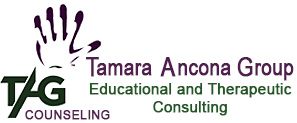 For most of our parents, it is often difficult to distinguish between “normal adolescent” edgy behavior and problematic or even pathological acting out behavior. So how do parents respond or even know when to intervene? As a general rule, parents do not intentionally overlook the tell tale signs of a troubled teen nor are they off base when they begin to pull all the pieces together. Parents usually know the tip of the iceberg of what’s going on with their child, but what is even more scary to them is not knowing how deep under the surface it may go and how dangerous its course may be? Many of our clients exhibit varying degrees and combinations of the following behaviors and issues:
For most of our parents, it is often difficult to distinguish between “normal adolescent” edgy behavior and problematic or even pathological acting out behavior. So how do parents respond or even know when to intervene? As a general rule, parents do not intentionally overlook the tell tale signs of a troubled teen nor are they off base when they begin to pull all the pieces together. Parents usually know the tip of the iceberg of what’s going on with their child, but what is even more scary to them is not knowing how deep under the surface it may go and how dangerous its course may be? Many of our clients exhibit varying degrees and combinations of the following behaviors and issues:
- Declining academic performance
- Low self-esteem
- Increased aggressiveness or anger (verbal and/or physical)
- Erratic moods
- Poor impulse control
- Lack of motivation, underachievement
- Poor social skills, difficulty making or keeping friends
- Negative peer group
- Bullying
- Difficulty making transitions or adapting to change
- Trauma
- Inter-relational difficulties
- Adoption difficulties
- Rebellion against authority, rejection of rules
- Opposition or defiance
- Substance abuse/chemical dependency
- Social media abuse/sexting
- Process abuse/addiction (internet, gaming, gambling, pornography)
- Sexual acting out or promiscuity
- Struggles with loss or grief
- Running away
- Trouble with the law
- Self-harm or suicidal/homicidal gestures, ideation
- Previous acute psychiatric care or multiple treatment interventions or placements
Some students may have one or more of the following diagnoses:
- Attention Deficit/Hyperactivity Disorder (ADD/ADHD)
- Learning Disability (LD)
- Language-Based
- Non verbal (NLD/NVLD)
- Visual and/or Auditory
- Processing
- Writing Disorders/Dysgraphia
- Reading Disorders/Dyslexia
- Sensory Integration Disorder
- Developmental Delays
- Anxiety Disorder
- Obsessive-Compulsive Disorder (OCD)
- Oppositional Defiant Disorder (ODD)
- Personality Disorder (Borderline, Dependent, Conduct, etc)
- Substance Abuse/Chemical Dependency
- Internet Use Disorder (Internet Addiction, Video Gaming Addiction, Social Media Abuse, Cell Phone Abuse)
- Sexual Identity Disorder,
- Gender Identity Disorder
- Eating Disorder (Anorexia, Bulimia, Obesity, etc)
- Thought Disorder (Psychosis, Schizoid, etc)
- Post Traumatic Stress Disorder (PTSD)
- Mood Disorder (Depression, Bipolar, etc)
- Brain trauma/injury
- Autism Spectrum Disorder (Asperger’s, Autism, or other Pervasive Development Disorders (PDD))
- Adjustment Disorder
- Complex Trauma
- Complex Grief
